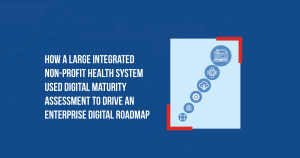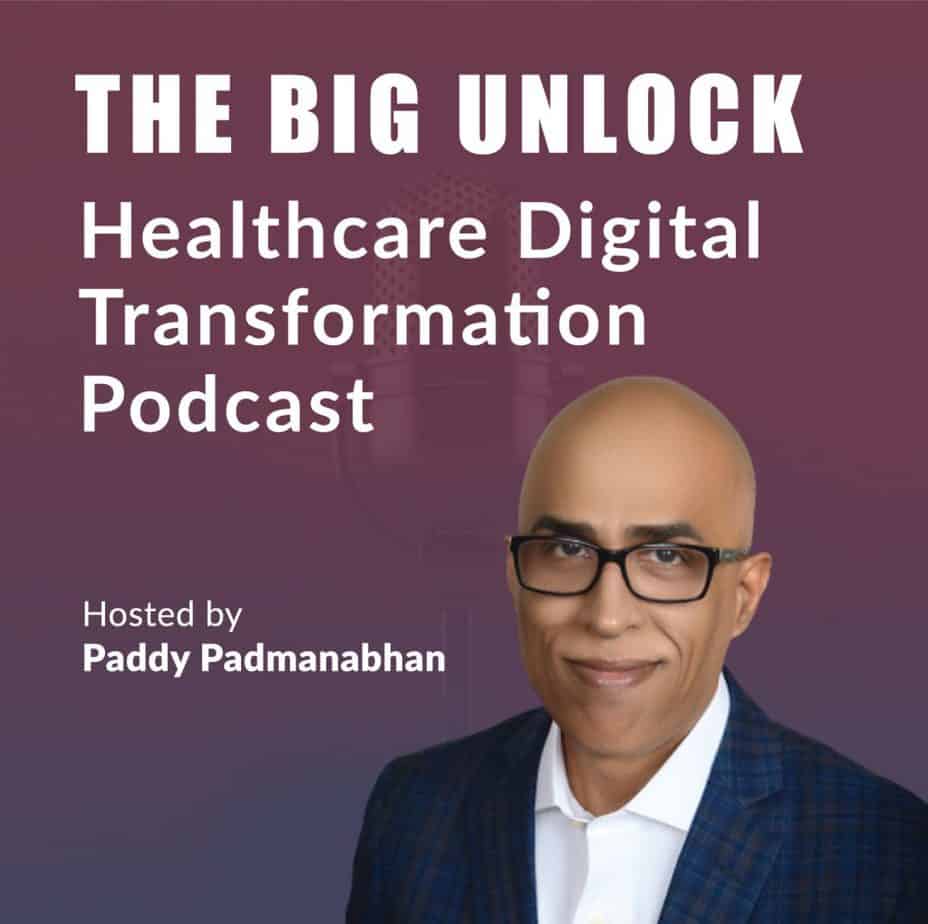The great digital health reset – and how IT leaders should plan for what’s next
As a high-flying startup ecosystem comes back down to earth, health systems with the financial resources will be able to double down on their digital transformation efforts.

Originally published on Healthcare IT News
Back in 2020, in the immediate wake of the pandemic, we were celebrating the coming of age of digital health – the 25X to 50X increase in telehealth visits, the explosion in VC funding for digital health startups delivering point solutions for digital engagement and access to care, the sense of the dawn of a new and exciting era in healthcare.
Indeed, that sense of optimism would pervade the startup ecosystem for the next year and a half. Digital health startup investments reached a new high in 2021, closing the year with more than $30 billion in venture capital funding. VCs couldn’t get enough, plowing vast sums into unproven companies like Noom, which provided weight-loss advice and received $540 million in a mega-funding round in 2021.
Unicorns to ‘uni-gones’?
Over the past couple of months, the sobering news of high-flying startups coming back to earth has been a steady drumbeat in the background. While companies have continued to raise money into the current year, the prevailing sentiment is that we won’t surpass 2021 funding levels; in fact, the contrary as VCs start to pull back on funding. No one anticipated the sudden turn in fortunes for once high-flying startups, especially those anointed with “unicorn” status. Many will be gone soon.
Let’s take the example of behavioral health. The mental health crisis has been a pandemic within a pandemic. Demand for mental health services has shot through the roof as workers – especially healthcare workers – struggled with increased workloads and stress. Behavioral health was the most funded segment within digital health in 2021, with more than $5 billion, or one-sixth of the total funding volumes.
As multiple startups emerged with models to provide mental health services using a virtual care model, health systems have turned to these startups to extend their mental health services to their patients and employees. Behavioral health may well be the one bright spot in virtual care, as evidenced by a sharp rise in claims for mental health diagnoses since this year.
But recent data suggest that mental health app downloads have declined by a third since last year. A couple of the more prominent startups in the space have run into trouble.
Earlier in the year, mental health company Talkspace disclosed challenges with declining revenue growth for the business even as it faced a securities fraud class-action lawsuit. In early May, Cerebral, another mental health company, came under federal investigation for its prescribing of controlled substances and subsequently ousted its founding CEO in a messy boardroom coup. Even high-profile unicorn Noom has laid off many of its staff amidst complaints of high fees for canned advice via text.
Meanwhile, the presumably well-established telehealth and virtual care companies that went IPO have seen their stocks decline, including telehealth bellwether Teladoc, which is trying to digest its $18 billion acquisition of Livongo while also dealing with declining telehealth visits as the pandemic retreats.
Challenges, opportunities for IT leaders
Even as health systems continue to make progress with integrating digital modalities into their operations, they have had to contend with the whiplash effect of the fluctuating fortunes of buzzy startups and more mature tech firms alike.
Healthcare CIOs and CDOs have to now monitor the sector closely and constantly assess their risk exposures to startups and tech firms for signs of trouble. The symptoms range from delayed product releases, flight of key talent, financial woes, and more. CIOs are responding in many ways – from initiating platform migrations to doubling down by taking equity stakes in promising startups with the potential for investment gains.
In an interesting reversal of trends, some health systems have chosen to go with the reliability and safety of their core platform partners, such as electronic health record vendors. They are also turning to stable and deep-pocketed enterprise-class platform providers such as Amazon, Google, Salesforce, and Microsoft as these firms deepen their commitment to healthcare with industry-specific product and platform enhancements.
EHR vendors, for their part, are touting ease of integration as an attractive value proposition, citing reduced friction and faster deployment as a lever to expand into new areas, an example being Epic’s entry into the CRM space.
As healthcare CIOs look closely at their trade-offs, many startups face the stark reality that, a) their sales cycles could just get longer, and b) their solutions may be replaced when their clients consolidate technology solutions under fewer enterprise-class platforms for improved interoperability and reduced vendor management overheads.
The ongoing consolidation among health systems (SCL-Intermountain, Atrium- Advocate Aurora) will also lead to vendor consolidation at these enterprises, putting further pressure on marginal startups and technology solution providers.
Even as they scan the market, CIOs and CDOs are looking hard at their existing investments in digital health. They realize that there’s often more payback in optimizing workflows and driving adoption rates for existing digital health programs than in launching new ones; that there are more gains from consolidating platforms than in buying new ones; there’s more benefit to slowing down on multi-million dollar technology projects to redirect some of the funding towards pay increases for loyal staff.
For some, it may even make more sense to wait for the red-hot talent market to cool off or to shift work offshore. Big tech companies such as Amazon and Salesforce are imposing hiring freezes that will act as a release valve in the pressure cooker of the current talent market.
No one knows how long the current inflation conditions, supply chain bottlenecks, and talent shortage will last. But one thing is for sure: Cash, as always, is king. Health systems with the financial resources will be able to double down on accelerating transformational programs, just as well-capitalized startups with market traction will pull ahead in the digital health sweepstakes.
The great reset underway in the startup ecosystem may just be the cleansing everyone is waiting for.















